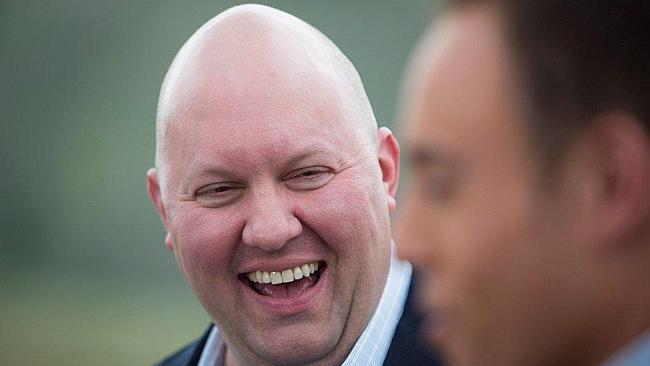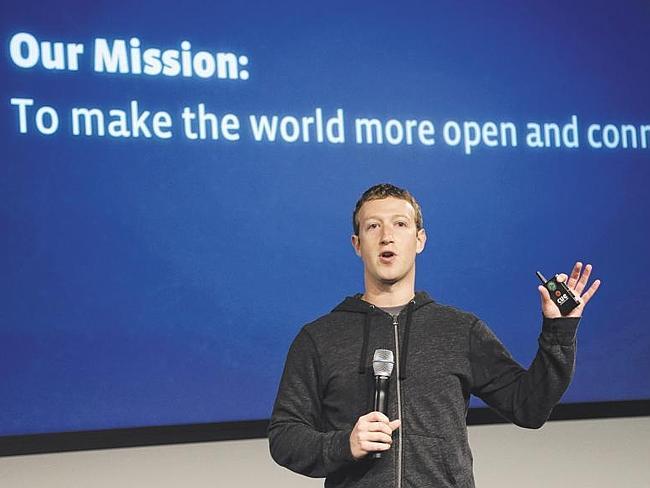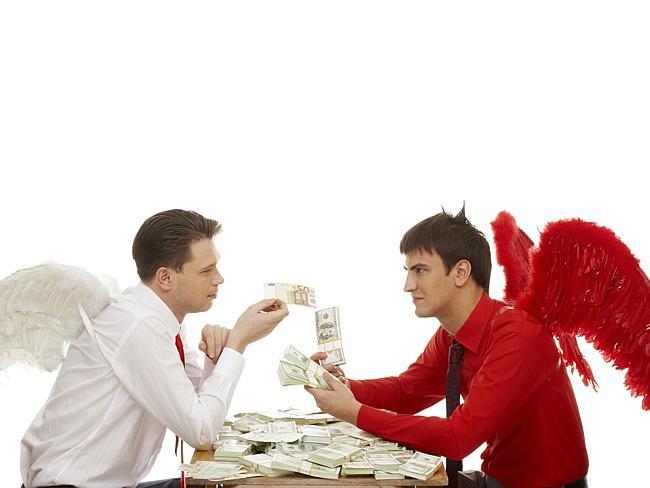How venture capitalists like Marc Andreessen buy influence in businesses like Facebook, eBay and Jawbone
HOW is it this one man has control in Facebook, Twitter, Pinterest, eBay and Airbnb? Explore the mysterious world of venture capitalists and the staggering influence their money buys.

Small Business
Don't miss out on the headlines from Small Business. Followed categories will be added to My News.
VULTURES or angels? Venture capitalists (VC) are to start-ups like pollen is to bees. For start-ups looking to fund their Great Big Ideas, VCs can be a godsend. A godsend with brimming pockets of cash.
But what is it they do? If pushed at the pub could you answer it beyond “something to do with investments”?
VCs are behind some of the biggest business success stories, most notably billion-dollar technology companies such as Facebook and Twitter.
VCs control big money funds bankrolled by other investors looking for a great return (typically 20 per cent) but are cognisant of and willing to take the high risks.
Adventure Capital founder and managing partner Stuart B Richardson said most Australian VCs are funded by rich individuals and families. He said institutional investors (organisations with sizeable pooled funds such as insurance companies and mutual and superannuation funds) have largely been spooked by VCs after failed investments from an earlier generation of VCs.

So how does it work? Start-ups looking for a cash injection seek out VCs to help them find money for a variety of things like setup costs, operational expenses or to fund a prototype. In exchange, VCs usually get an equity stake in the business as well as influence in how the company is run. VCs can buy into a business at different times, from the seed money stage through to later rounds of funding.
Additionally, VCs can also provide valuable guidance and access to networks. Especially as, Mr Richardson said, the people running VCs are no longer just professionals with finance experience. They often have experience in technology or the area that VC focuses on.
It’s this influence which VCs buy with their money that has made Marc Andreessen of Andreessen Horowitz, a $US2.7 billion fund, a godfather of Silicon Valley with his fingers in many pies.

In the nascent days of the internet, Mr Andreessen founded Mosaic, the first graphic web browser, before going on to create Netscape and a couple more technology businesses, none of which are around anymore in its original guise.
In 2009, Mr Andreessen started the fund with business partner Ben Horowitz with an initial $US300 million. Andreessen is the backroom guy whispering into the ears of many of the technoratti.
He serves on the boards of Facebook, eBay and Hewlett Packard among others. He also has or had investments in a rollcall of Silicon Valley firms: Facebook, Pinterest, Foursquare, Jawbone, Twitter, Zynga, Airbnb, Instagram, Oculus, Asana, Leap Motion and Groupon, plus dozens of others.
He was part of a consortium whose majority ownership of Skype, which they bought into for $2.75 billion, paid off big time when Microsoft acquired the video calling platform for $8.5 billion.

If you’re a start-up wondering how to get your hands of that pot of gold, a great idea is not enough for a VC to invest in you.
“With us, we’re looking at the founding team’s DNA,” Mr Richardson said. “What is the constitution of the team? What’s their collective experience? On the other side, we also select things we can give value to.
“Our focus is early stage technology. Things that are in their infancy and have significant potential for growth or disruption, and not replicas of existing models.”
He explained the economics of the VC industry is it’s looking for potential that will see a return on investment of 10 times the investment. Mr Richardson said successful managers would see a success rate on businesses they choose to back of 20 per cent. The big return from those investments offset the companies that ultimately fail to fire.
VCs usually collect when the business is either sold off or goes public.
The other side of the argument is detractors accuse VCs of being too focused on the pay-off, moving companies to sell or go public even if it’s not in their best interest.
Mr Richardson said his company receives four to five approaches a day from start-ups and it will usually take one or two meetings a day. Many of the companies in Adventure Capital’s portfolio, such as online personalised audio platform 121Cast, works out of the York Butter Factory, a co-working space it set up as the entrepreneurial hub of Melbourne.
###



